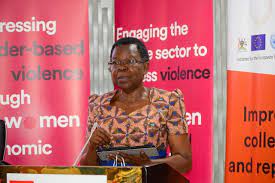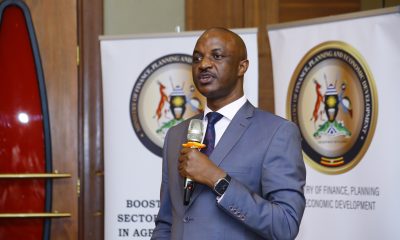Former Agriculture Minister Victoria Ssekitoleko has called for a transformative shift in Uganda’s education system, advocating for a localized approach to the school syllabus. Ssekitoleko’s impassioned plea was made before the Amanya-Mushega-led education policy review commission on Wednesday, where she drew upon her extensive leadership experience and diplomatic roles in various countries.
Current challenges with the national curriculum
Ssekitoleko contends that a uniform nationalized curriculum has fallen short in addressing the diverse backgrounds of students, rendering it ineffective in making education relevant to individual children, communities, and the country as a whole. She stressed the need for a paradigm shift, urging the customization of the curriculum to harmonize with the unique economic, cultural, and transitional characteristics of each region.
Region-specific elements in education
To make education more relatable, Ssekitoleko proposed incorporating region-specific elements into basic education. As an example, she suggested adapting the alphabet to reflect local contexts, such as using “C” to represent “Calf” instead of “Car” in areas with a tradition of cattle rearing. Dr. Kedrace Turyagyenda, a member of the commission, supported the idea of creating a framework that allows customization while avoiding a one-size-fits-all approach.
Technical education and skills development
Ssekitoleko extended her proposal to the technical education system, emphasizing a region-specific focus. She argued that learners should be educated to contribute meaningfully within their local value chains. Drawing on cultural practices, she suggested integrating such practices into the curriculum, citing the example of goat farming skills in regions where communities traditionally gift goats to newborns.
Learning from successful models
Ssekitoleko drew parallels with successful nations like China, emphasizing the importance of adapting education to local culture and practices. She cautioned against blindly adopting Western learning models, urging Uganda to forge its own path aligned with its unique context and needs.
Early introduction of skills
Ssekitoleko advocated for the early introduction of skills to learners, focusing on core areas such as mathematics, languages, and ICT. Her stance aligns with the recommendations of many others who have shared their views with the commission.
Integration of creative arts and gifted education
The former minister recommended integrating the creative arts sector and industry into the education system, emphasizing its substantial economic value. She highlighted the need for creativity and innovation to be systematically incorporated into the education system from the early years of a learner’s development.
Ssekitoleko also stressed the importance of developing a system to identify highly gifted students, expressing concern that talented individuals in Uganda often face frustration within the existing education system.
Challenges and policy hurdles
The article also addresses existing challenges and policy hurdles, such as the Uganda National Examinations Board’s minimum four-year requirement for registration, hindering learners who could cover these four years in just two.
In conclusion, Ssekitoleko’s call for a region-specific approach to education in Uganda reflects a growing sentiment for a more tailored and culturally relevant curriculum. The debate raises crucial questions about the future direction of Uganda’s education system and its ability to prepare students for the unique challenges and opportunities in their respective regions.
















